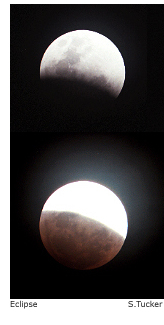Grading
A grade will be assigned for your perfomance on each topic. It will be based on material you will hand in, a group presentation
or report, and your demonstration of what your group has done in a meeting with the TA at the end of each 3-class period.
You will work together to learn the material from each topic and produce a report or presentation, but each of you must
understand what is in the report and what was done in your experiments. Members of a single group will not necessarily all
receive the same grade based on the discretion of the professor and TA.
Individually, for each completed segment, the student will be assigned a letter grade based on the materials and presentations.
A
|
Complete, Superior performance on most aspects
|
B
|
Adequate performance on all aspects
|
F
|
Incomplete, or complete but inadequate performance on all aspects
|
 Ninety percent of the student's final grade will be calculated from the average of three segment grades. The
remaining 10% will be for participation credit. Students must attend at least 8 classes from the 2nd week
through the end.
Ninety percent of the student's final grade will be calculated from the average of three segment grades. The
remaining 10% will be for participation credit. Students must attend at least 8 classes from the 2nd week
through the end.
With an excused absence, students can make up two classes by arranging with the TA to attend at one of the
alternate times. Students doing the unaided eye observing must obtain one "night participation credit" and students
doing the telescope observing two such credits from the TA. Failure to participate at the required level will lower
your final grade by one full letter. Be aware also that actual active participation in your group's activities counts
as part of your performance on the segments.
Topics
There are currently five discovery kits, of which each group will choose three.
- Unaided Eye Astronomy. You will learn about what astronomers studied before the invention of the
telescope - positions of stars, motions of the Sun and stars, and measurements you can make with simple
instruments.
- Observing with Telescopes and Digital Cameras. You will learn to use computer-controlled telescopes
and CCD cameras to take wide-angle photographs of the sky.
- Newton's Laws and Toys. Your group will make a video of demonstrations of Newton's Laws of motion
using toys.
- Optics: Lasers, Mirrors, and Jello. You will learn about how light reflects from mirrors and refracts in Jello.
Can you make your own lenses?
- Optics: Lenses, Cameras, and Telescopes. You will learn about how lenses work and how astronomical
instruments can be made from them.
Office Hours
The Professor or TA will be available during the following times (in the classroom, 13.132):
TBA
Additional hours will be announced on our webpage once we know
which hours will serve the most people.
During these times, you can gain access to the equipment or ask questions
of the TA. If you are unavailable during these times, please contact the
TA for other times. Also, you will be expected to attend during the normally
scheduled class time unless otherwise instructed.
|

 Ninety percent of the student's final grade will be calculated from the average of three segment grades. The
remaining 10% will be for participation credit. Students must attend at least 8 classes from the 2nd week
through the end.
Ninety percent of the student's final grade will be calculated from the average of three segment grades. The
remaining 10% will be for participation credit. Students must attend at least 8 classes from the 2nd week
through the end.